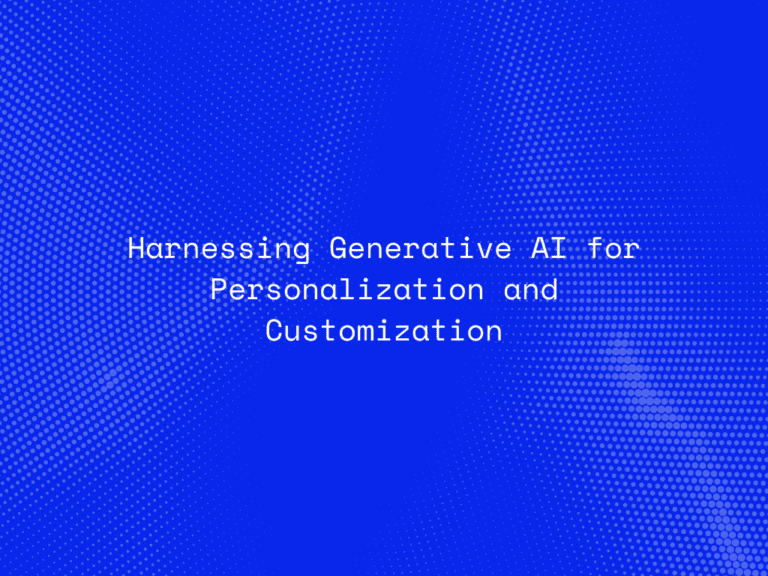In today’s fast-paced market, businesses are constantly looking for ways to differentiate themselves. Machine learning (ML) has emerged as a powerful tool that can give companies a competitive advantage by unlocking valuable insights, automating tasks, and improving decision-making processes. This article delves into the various ways that ML can help businesses stay ahead of the competition and drive sustained growth.
Key Benefits of Machine Learning for Competitive Advantage
- Enhanced Customer Insights: Machine learning models analyze customer data to uncover patterns and preferences, enabling businesses to tailor their offerings and create personalized experiences.
- Process Automation: ML automates repetitive tasks such as data entry, quality control, and even elements of customer support, freeing up resources and allowing teams to focus on strategic initiatives.
- Predictive Analytics: With ML, businesses can anticipate market trends, customer behavior, and demand fluctuations, enabling proactive decision-making.
- Improved Product Development: By analyzing customer feedback and usage data, ML helps companies refine their products and create features that resonate with their target audience.
How to Leverage Machine Learning for Competitive Advantage
- Data Collection and Preparation: High-quality data is essential for effective machine learning models. Businesses should focus on collecting comprehensive, relevant data to fuel their ML algorithms.
- Implementing Predictive Models: Predictive models can forecast everything from sales trends to inventory needs, allowing companies to operate more efficiently and respond to market demands quickly.
- Personalization at Scale: Machine learning enables hyper-personalization by analyzing user data to provide tailored recommendations, product suggestions, and content, enhancing customer satisfaction and loyalty.
- Automating Customer Support: ML-powered chatbots and virtual assistants handle routine inquiries, providing instant support and reducing response times, which contributes to better customer experiences.
Case Studies: Businesses Using ML for Competitive Advantage
- Retail Giants: Companies like Amazon and Walmart use ML to optimize inventory, personalize customer recommendations, and streamline logistics.
- Finance and Banking: In the financial sector, ML models are used for fraud detection, risk assessment, and investment insights, helping institutions stay ahead of risks and capitalize on opportunities.
- Healthcare Innovations: In healthcare, ML helps in diagnostic imaging and predictive analytics for patient outcomes, enabling faster and more accurate treatment plans.
- Manufacturing Automation: Manufacturers use ML-driven automation to optimize production, reduce waste, and predict equipment maintenance needs, resulting in more efficient operations.
The Challenges of Implementing Machine Learning
- Data Privacy and Security: Ensuring data privacy and compliance with regulations is critical, especially as ML models process large amounts of personal information.
- Resource Requirements: Developing and deploying ML systems can require substantial computing power and expertise, which may pose a challenge for some companies.
- Model Interpretability: ML models, especially complex ones, can act as “black boxes.” This lack of transparency can make it challenging to understand or explain decisions made by the model.
- Managing Bias: Bias in ML models can lead to unfair treatment or skewed predictions, impacting customer trust and the reliability of insights.
The Future of Machine Learning in Gaining a Competitive Edge
- Democratization of AI Tools: As ML platforms become more accessible, smaller businesses can start to leverage these tools to compete with larger enterprises.
- Real-Time Decision Making: With advancements in real-time analytics, ML will enable companies to make instant, data-driven decisions in dynamic market environments.
- Explainable AI (XAI): Developing explainable AI models will enhance trust in machine learning, making it easier for stakeholders to understand and trust automated decisions.
- Collaboration Between ML and IoT: Machine learning, combined with the Internet of Things (IoT), will bring new insights through sensor data, enhancing predictive maintenance and operational efficiency.
Conclusion:
Machine learning is more than just a buzzword; it’s a transformative tool that can help businesses gain a competitive edge by improving efficiency, predicting trends, and enhancing customer experiences. By understanding the potential of ML and addressing its challenges, companies can position themselves as industry leaders in the AI-driven landscape. Embracing machine learning today can mean sustained success and innovation in an increasingly competitive world.




